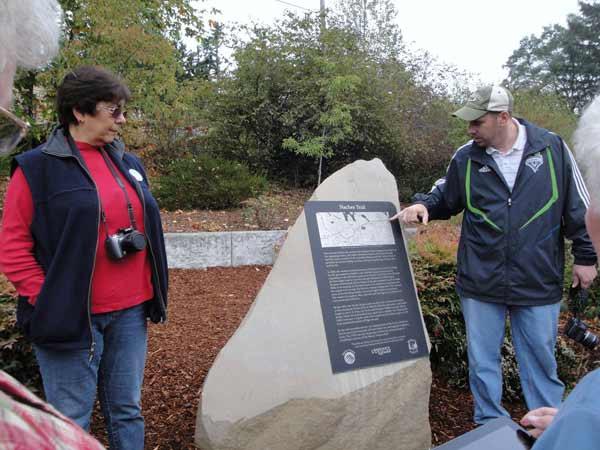The Greater Bonney Lake Historical Society hosted walk through history this past weekend, with a special Saturday hike along the old Naches Trail.
The day began at the Foothills Museum in Buckley as the group battled some early morning rains, but the clouds cleared as the group made their way across the path that brought military and settlers alike across the mountains into what was then still known as the Oregon Territory.
According to an email from Fred Jacobsen, the group’s first stop was at Golden Valley, where many people walked nearly a half-mile to the river to listen to discussions about how the river has shifted over the years, as well as a look back at 1854, when Ezra Meeker crossed at this pointto meet his parents’ wagon.
The next stop was the Reed Farm on Connells Prairie. In 1855, Connell’s Prairie, just outside today’s city limits, became the flashpoint for the Puget Sound Indian War when Michael Connell and Lt. James McAllister were ambushed by Native Americans as they crossed what was then a swamp. The next day, the Native Americans crossed the White River and killed nine more settlers before returning to the prairie to ambush two more.
Today, the spot is marked by a large stone pyramid at the intersection of Connell’s Prairie Road and Barkubin Road, where the tour also made a brief stop.
The group also stopped on Kelley Lake Road to view the Kelley Farm, the city’s oldest permanent residence.
The tour made a brief stop at Grainger Springs, near what was once the home of Oscar-winning documentarians Alfred and Elma Milotte, before making their way across the Puyallup River on 96th Street.
Speakers included Winona Jacobsen, author of “Bonney Lake’s PLateau” and Dennis Dhaese, president of the historical society, and others.
Next on the agenda for the Historical Society is the Milotte Film Festival, scheduled for Oct. 20.



